In 2021, French film-maker Julia Ducournau won the Cannes Palme d’Or with her blistering, autoerotic magnum opus Titane. It was a richly deserved victory – a celebration of a bold new voice in cinema. Yet for longstanding fans of body horror – a genre pioneered decades earlier by the Canadian writer-director David Cronenberg – it also felt like karmic payback for the festival’s botched response to Crash, Cronenberg’s controversial 1996 masterpiece, to which Titane is heavily indebted.
During a career spanning six decades and more than 20 feature films, Cronenberg, 81, has inspired everyone from Japanese auteur Shinya Tsukamoto (Tetsuo: The Iron Man) to rising British star Rose Glass (Saint Maud, Love Lies Bleeding). But his brilliant JG Ballard adaptation was denied its own Palme d’Or win thanks largely to the disdain of Cannes jury president Francis Ford Coppola. Instead, Crash earned a “special jury prize”, which Cronenberg called “the jury’s attempt to get around the Coppola negativity”. Speaking in 2021, on the eve of a 4K restoration of Crash, Cronenberg noted sardonically that “I’ve run into [Coppola] several times at various festivals. Always the first thing he says is: ‘Remember, we gave you this award.’ In fact, during the final closing night ceremony he wouldn’t hand me the award. He had someone else hand it to me. He wouldn’t do it himself.”
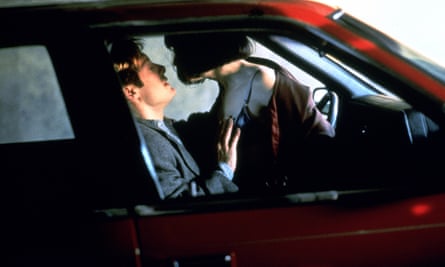
Lambasted by the Evening Standard, boycotted by the Daily Mail and banned from cinemas in Westminster (really), Crash nevertheless marked the beginning of Cronenberg’s ascension to international film royalty. In 1999 he would himself serve as jury president at Cannes, going on to earn Palme d’Or nominations for several subsequent features: the 2002 Ralph Fiennes psychodrama Spider; the brilliant graphic-novel adaptation A History of Violence (2005), with a career-best performance by Viggo Mortensen; the Don DeLillo adaptation Cosmopolis (2012); the scathing Hollywood satire Maps to the Stars (2014); and the body-horror throwback Crimes of the Future (2022). Last month, The Shrouds, which Cronenberg describes as being “partly inspired by the death of my wife in 2017”, became his latest film to premiere in competition at Cannes, prompting the now revered film-maker to observe that “all my movies are personal”.
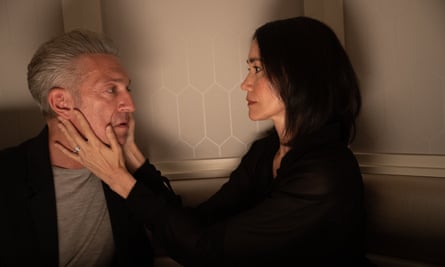
Elsewhere, Cronenberg has won a Berlin Silver Bear for outstanding artistic contribution for the sci-fi/horror eXistenZ (1999), and shared a Bafta best British film nomination for the tattooed thriller Eastern Promises (2007). It’s all a far cry from the garish posters for his 1975 frightener Shivers (AKA The Parasite Murders/They Came from Within), which first mesmerised me with its teasing tagline: “Being terrified is just the beginning!” I was too young to see the X-rated movie, or its thematically linked follow-up Rabid (“Pray it doesn’t happen to you!”). But by the time Cronenberg’s mainstream breakthrough Scanners (1981) opened at the ABC Edgware, I’d caught up with his back catalogue through late-night screenings, and devoured endless articles about his squishy oeuvre in the pages of the American horror magazine Fangoria. “David Cronenberg’s Scanners EXPLODES! with telepathic terror” declared the front cover of Fangoria Issue 10, while Issue 24 featured bloody offal bursting through a television screen under the headline: “Videodrome: TV with guts”. Good times!
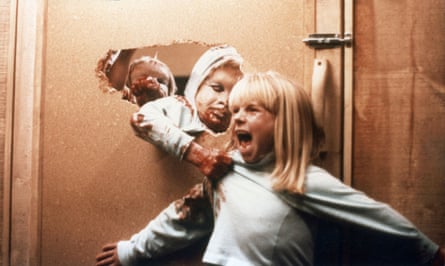
Despite such gory adulation, Cronenberg’s visceral imaginings have always owed more to the surrealism of Buñuel than to any violent slasher heritage. Smartly mixing brains with brawn, he co-opted the splattery language of horror cinema to conjure fleshy visual metaphors for all-too-real anxieties. No surprise that the 1983 essay collection The Shape of Rage: The Films of David Cronenberg took its title from The Brood(1979), in which experimental therapist Dr Hal Raglan (Oliver Reed) teaches his patient Nola Carveth (Samantha Eggar) to externalise her inner anger through a process called “psychoplasmics” – lending physical form to abstract emotions.
The Brood horrified international censors, who saw it as simply exploitational schlock, although Cronenberg (who conceived the movie during an acrimonious divorce) called it “my version of Kramer vs Kramer”. In 1983, Videodrome (“Long live the new flesh!”) would cheekily imagine what would happen if those same censors’ fears about films and TV reshaping reality became real, while his transformational 1986 hit The Fly fused a 50s sci-fi shocker narrative with Kafka’s Metamorphosis to create an eye-popping meditation on ageing, humanity and death.
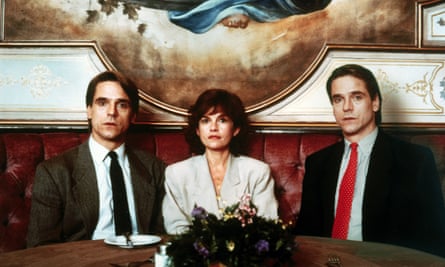
Those themes also underwrite my favourite Cronenberg film, Dead Ringers (1988). A mournful tale of identical twins (both played by Jeremy Irons) whose lives unravel when separation looms, Dead Ringers is by turns horrifying, humorous and heartbreaking. As Cronenberg recently observed: “Grief is forever, as far as I’m concerned.” That phrase perfectly encapsulates his entire filmography – an extraordinary body of work ranging from low-budget horrors to high-brow dramas, in which complex musings on mutation, metamorphosis and death are made glorious flesh.
All titles in bold are widely available to stream unless otherwise specified.
after newsletter promotion
What else I’m enjoying
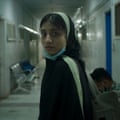
In Flames
Pakistan’s entry for best international feature film at the 96th Oscars is a down-to-earth tale of patriarchal oppression dressed in the garb of a supernatural chiller. Like Babak Anvari’s Tehran-set masterpiece Under the Shadow, this debut feature from writer-director Zarrar Khan is thought-provoking, spine-tingling fare.
Abba Voyage
I know I’m late to this party (the show’s been running since 2022!), but this stunning virtual concert is the closest you will ever get to seeing a ghost. Genuinely uncanny incarnations of Benny, Björn, Agnetha and Anni-Frid perform a set of gold-plated pop bangers that had me weeping in jaw-dropped awe for 90 solid minutes.

Source: theguardian.com





















